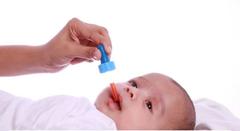It’s hard to separate facts from myths when you are on the receiving end of uninvited advice. After the baby is born, you’ll find yourself in a deluge of emotions and sea questions about what is right and wrong?
On the occasion of World Breastfeeding Week, Ms. Shauravi Malik, co-founder, Slurrp Farm, in her recent conversation with Dr. Arun Wadhwa, MD (Paediatrics) and child specialist on the subject of breastfeeding outlined the facts and busted common myths surrounding the topic.
|
Expert Nutrition Tips And Diet For Pregnant Women – During And Post-Pregnancy |
In this blog post, we are sharing the conversation (in verbatim). Here are 11 myth that would debunk to set the record straight. Any new mom’s doubts and uncertainties will be put to rest. Hope this helps.
Here is a list of surprising facts and myths about breastfeeding:
Myth 1. Giving formula milk once before 6-months can help the baby to adjust to bottled milk later.
Often working mums find themselves unable to breastfeed the baby on certain occasions. Although breast milk is the best nutritional choice for infants, your baby’s health and happiness are, in large part, determined by what works for you as a family. The AAP (American Academy of Pediatrics) recommends that babies be breastfed exclusively for the first 6 months. Starting your breastfed baby on formula can cause some change in the frequency, color, and consistency of the stools (poop). Be sure to talk to your doctor, though, if your baby is having trouble pooping.
Myth 2. Babies who drink formula milk get less colic.
Colic is excessive crying in healthy babies without an obvious cause. In Dr. Wadhwa’s experience, babies who are breastfed get less colic. Though in some cases babies breastfeeding gets colic too. Colic dissolves itself by 3 months, till then you need to be cautious. Some tips to reduce colic in your breastfed baby are if your baby is crying, you can offer the breast even if you don’t think she’s hungry. Breastfeeding is comforting for a child. Breastfed babies tend to take in less air during feedings than bottle-fed babies, so they don’t always need to burp after feedings. You can try to remove dairy products from your diet to see if the colic improves.
Myth 3. Checking the baby’s weight every day is a way to determine if the baby is getting enough breast milk.
As a new mom, you may worry that your baby is not getting enough milk. After all, you cannot tell how many ounces your baby took at one time. But there are other ways of monitoring your baby’s intake. If your child is passing urine 10 times in 24 hours than he/she is getting enough breastmilk.
1. If the child is sleeping for 2-3 hours after being fed, this indicates that his stomach is full.
2. The child should be passing stools 2-3 times during a day. It can be more depending on the normal frequency and history of the child’s stool pattern.
3. If the child is gaining proper weight, then he is getting enough milk. In the first 3 months the weight gain per week is 200 grams, in the next 3 months, 150 grams a week, and subsequently- it oscillates to become around a figure of 100 grams a week.
Dr. Wadhwa insisted that parents should check the child’s weight only once or twice a month and it should not be a measure to see if the baby is getting enough breast milk.
|
6-Months Baby Food Chart With First Foods Recommendation And Recipes |
Myth 4. During breastfeeding jaundice, the mother should not feed the child.
Breastfeeding associated jaundice is not caused by breastfeeding. Jaundice is a naturally occurring health condition that most newborns will acquire shortly after being born, so there is no specific way to prevent it. Due to elevated bilirubin (yellow coloring of the skin and eyes) levels in the newborn’s blood jaundice increases in the blood. There is usually no need to stop breastfeeding if jaundice occurs. In most cases, doctors encourage mothers to consistently feed their baby. If bilirubin levels reach above 20 milligrams, it may be necessary to use phototherapy and stop breastfeeding for 24 hours.
Myth 5. Mothers cannot feed after getting a flu shot.
Dr. Wadhwa suggested that the best time to get a flu shot is during pregnancy. The WHO (World Health Organisation) guidelines clearly say that pregnant mothers have a high risk of flu and should be prioritized to be given a flu shot. He also pointed out that except for the yellow fever vaccine, you can take any other vaccine while you are breastfeeding.
Myth 6. The mother’s diet does not impact the quality of milk and mothers can eat anything in any quantity.
Whatever a mother eats will show up in the breast milk. Studies have shown that whatever the mother eats, the baby can taste it through breastmilk. Sometimes when the mothers drink tea/coffee at 8 and breastfeed the child afterward, that child is stimulated and does not sleep for hours. Caffeine intake should be limited to 2-3 cups a day.
Drinking adequate amounts of water and getting at least 8 hours of sleep goes a long way to the mother’s health and quantity of breastmilk.
Myth 7. Mother’s should not feed if they are sick or during other diseases.
In fact, if a mother is unwell, she can continue to breastfeed. There are only a few and rare diseases that should deter her from feeding the child:
1. Drug-resistant tuberculosis
2. Cancer
3. Thyrotoxicosis
During any ordinary illness such as common cold, sore throat, flu, tummy bug, fever, etc she should continue to breastfeed.
Myths 8. Babies can be allergic to their mother’s breast milk.
Human breast milk typically does not cause allergic reactions in breastfeeding infants, in fact, only two or three out of every one hundred babies who are exclusively breastfed demonstrate an allergic reaction—and that’s most often to the cow’s milk in their mother’s diet. Children can often have a bovine milk allergy (it is an adverse immune reaction to one or more proteins in cow’s milk), which includes cow’s, buffalo’s, and goat’s milk.
Myth 9. Mothers should not start formula milk before 6 months.
Though the WHO guidelines suggest that after 6 months a mother can start formula milk, due to practical problems such as less milk production in the mother’s body or work-related issues, mothers can start formula milk after 4 months. But before 4 months, mother’s milk is the best option.
Myth 10. Breastfeeding at night would not lead to cavities.
Though breastmilk is the best, it is not advised to feed the babies through the night. Often babies lose teeth at the age of 2-3 due to feeding breastmilk at night. As milk contains lactose sugar in it, it would be best if it is not in contact with the teeth throughout the night. A lot of bacteria can thrive on it. Try to rinse your baby’s mouth before they go to sleep to avoid cavities.
Myth 11. Mothers who are COVID positive should not breastfeed.
You can breastfeed even if you test COVID positive, but certain precautions need to be taken. The mother should avoid kissing the child and wear a mask during feeding. The child can be nursed in the same room but proper distance needs to be maintained.
Dr. Wadhwa recommended maintaining a safe distance, washing hands regularly, wearing a mask, and not touching your face.
To listen to the insightful conversation of Dr. Wadhwa, follow the link.
We hope you have a happy and healthy future!
 |



